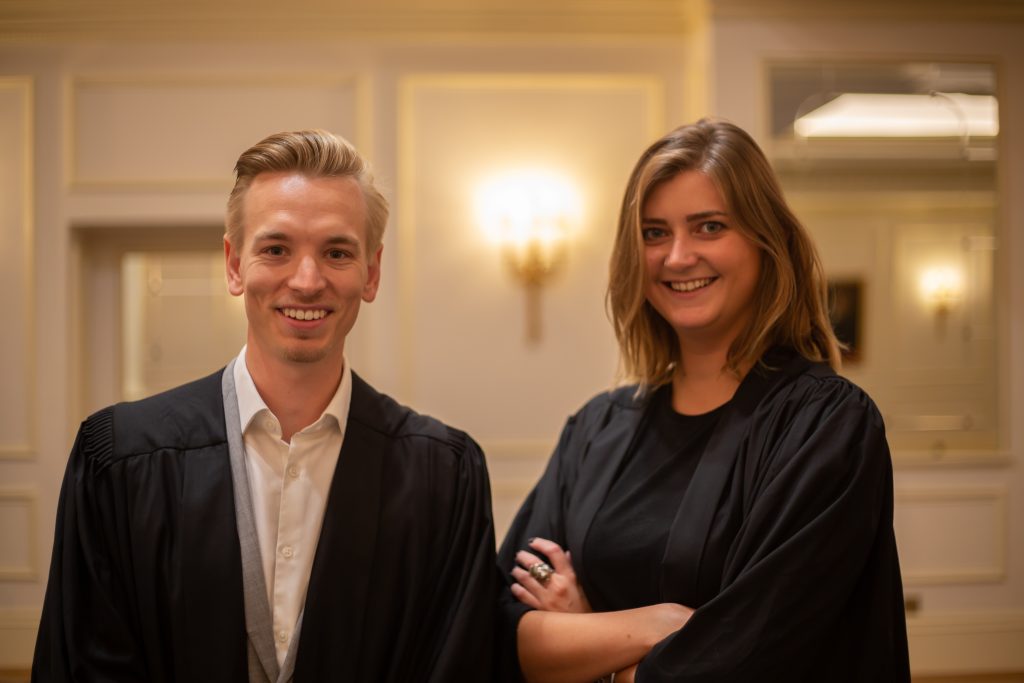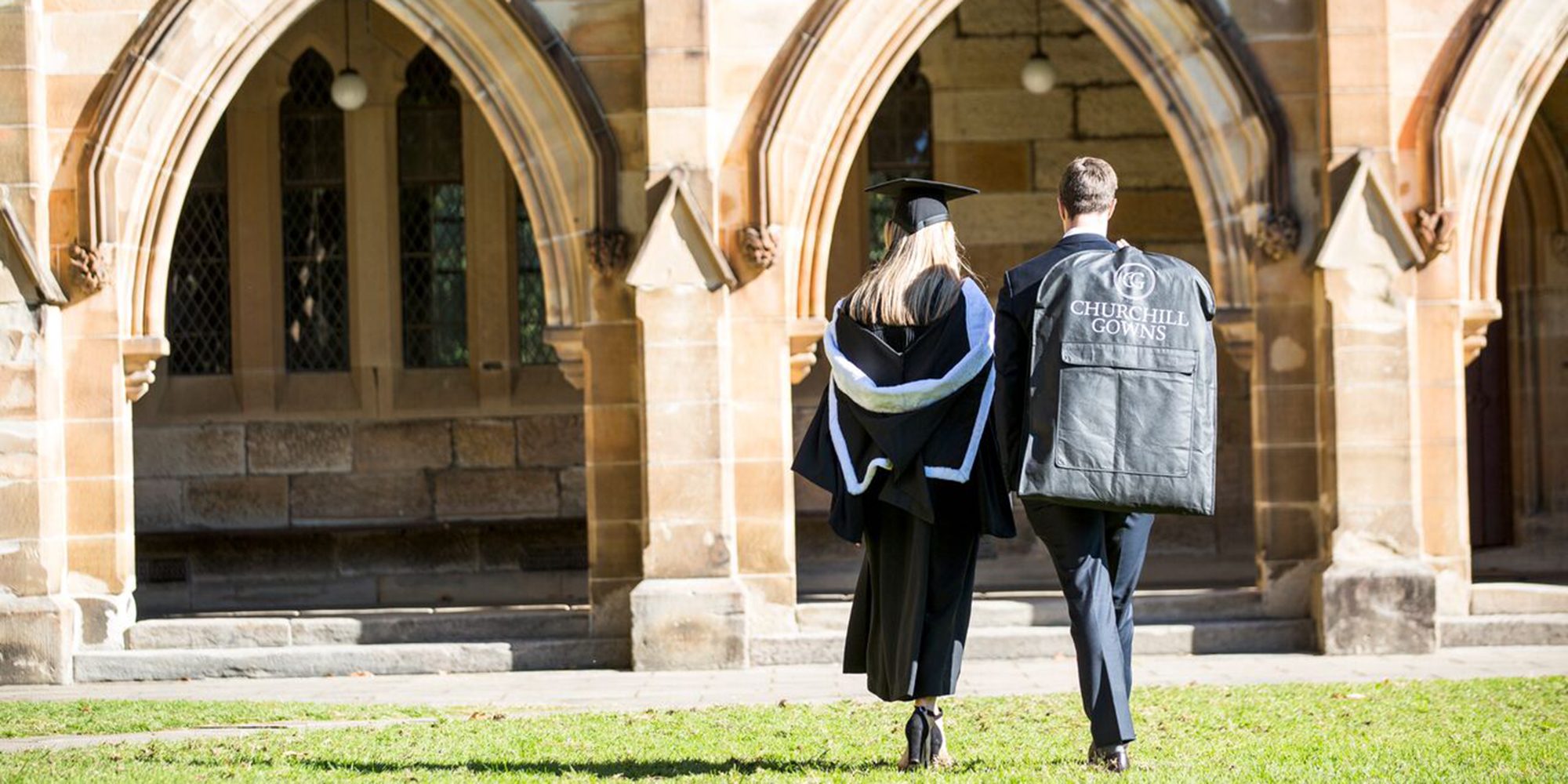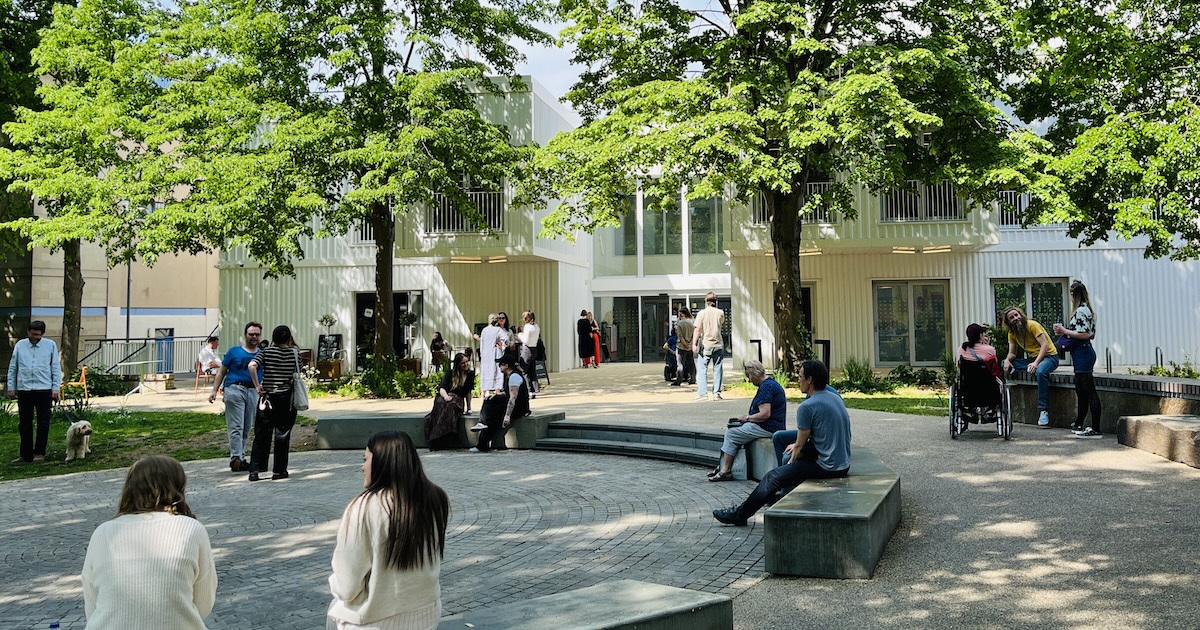Trying to graduate from university can sometimes feel as painful as flying on a certain budget airline. Oh, you want a ticket for your family? That’ll be £15 a pop. Those photos and official DVD will be extra too, thank you very much. And did we mention the cost of the gown rental? All this after shelling out as much as £27,750 for a three-year degree (university fees are capped at £9,250 per year in England). But for Oliver Adkins, a Plexal member and co-founder of graduation gowns startup Churchill Gowns, this just wasn’t good enough.
Having attended two graduation ceremonies to celebrate his undergraduate and master’s degrees, Adkins resented paying so much for hiring a gown for a few hours – especially since it didn’t strike him as a particularly complex – or sustainable – piece of clothing. “It felt like a bit of a kick in the teeth after all that hard work, to be honest,” he says. “For some reason, nobody had thought to take a second look at the graduation gown market. For both my graduations I was directed to the same supplier and both times paid an exorbitant amount of money for a gown that ticked no boxes for the modern, socially conscious consumer. Where was the competition? Where was the choice?”
With a niggling feeling that there had to be a better way, Adkins and his co-founder Ruth Nicholls did some digging into the market and discovered just how uncompetitive it was. “We found that a single player had been the architect of a very opaque industry. The universities, on their part, often take a commission on gown rentals (sometimes making tens of thousands of pounds per year) so there’s really no incentive for innovation. It was blindingly obvious to us that we were looking at an industry ripe for disruption.”
At this point, it would have been easy to jump straight into sourcing suppliers and offering up an alternative. But the duo were well aware that the industry they were so keen to shake up was also steeped in tradition, pomp and ceremony. They needed to tread carefully. And when it comes to academic dress expertise, there’s only one organisation to call upon: the Burgon Society.
This group of around 100 people from all over the world are united by their passion for academic dress. Meeting several times a year, their aim is to celebrate and preserve the traditions surrounding graduation gowns (which date back to the Middle Ages). “Many of the members are academics with a list of degrees as long as my arm,” says Adkins. “They took me under their wing and educated me about everything from the pleating in each gown to why the hoods look the way they do and how each gown is unique to a university. Essentially, they told me exactly what aspects of the gown we had to respect and leave unchanged.”

“We found that a single player had been the architect of a very opaque industry”
After being schooled by the Burgon Society, Adkins and Nicholls founded Churchill Gowns and focussed their attention on what they could tweak: the material a gown is made from and the process students go through to hire one. Knowing how important sustainability was to their millennial target audience, the entrepreneurs were able to find suppliers who could manufacture gowns using only recycled plastic (each gown keeps around 28 plastic bottles from reaching landfill). Crucially, they could do this while keeping prices affordable. And with the Burgon Society keeping close tabs on him, Adkins says he instructed his suppliers on every fold, pleat and colour to ensure the startup was also honouring tradition appropriately.
Churchill Gowns’ affordable and sustainable gradation gowns entered the graduation market in May 2018, and since then its line of products has expanded gradually. Students can now rent or buy graduation gowns, hoods, caps and legal accessories like wigs and gowns on Churchill Gowns’ ecommerce site.
A cap for curls: catering to an under-served market
But Adkins is far from done with his brand of respectful disruption. He’s spotted another gap in the market, this time for a cap that people with big, curly hair can wear without having to “hack the cap” by holding it in place with a hairband and sticky tape that could come undone at any moment.
After stumbling across a YouTube video demonstrating how to adapt graduation caps for curly or afro hair, Adkins and Nicholls realised that there were huge swathes of the student population not being catered for at all. “Your average graduation cap was designed for white men in the Middle Ages when there wasn’t much diversity among degree holders,” he says. “There’s been very little innovation since then, and it’s just wrong that so many people are being ignored or forced into essentially taking their cap apart to be able to wear it.”
And just as he leaned on the Burgon Society for his initial launch, Adkins has found the perfect partner for this latest project: Jennifer Agwunobi, a Loughborough University student and founder of Hair Goals. After being introduced by Plexal, Adkins has been working with Agwunobi on understanding the target market and what’s needed from a design refresh. As Adkins says: “While we’re all about being respectful to tradition, this is one area that needs to change – and fast.”


